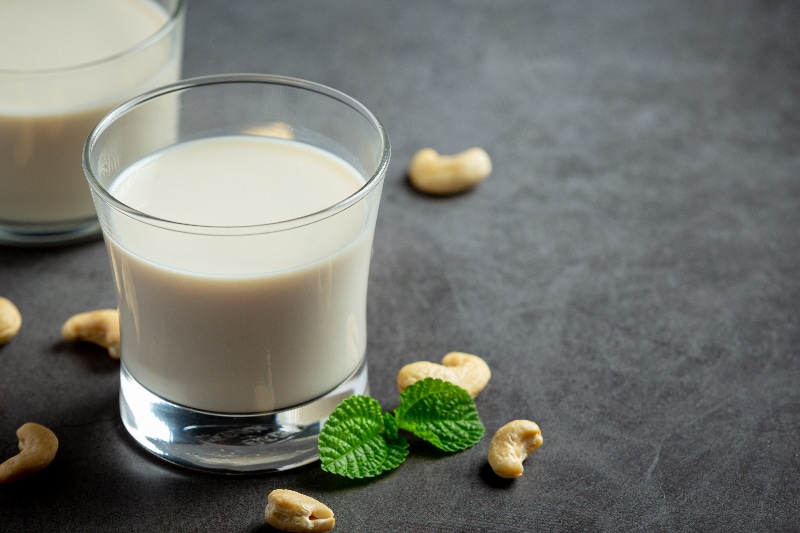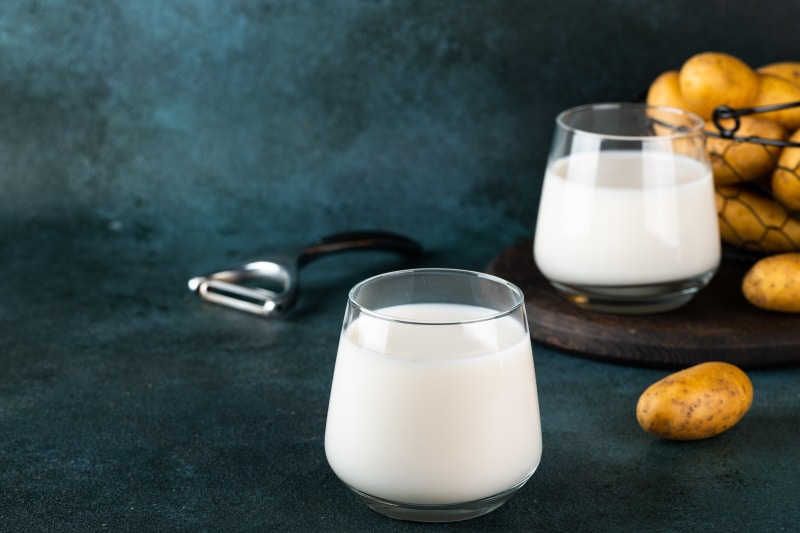Check out these five high-protein, dairy-free milk before you make your post-workout smoothie to get the most out of your milk.
Fortified soy milk is nutritionally equivalent to cow’s milk, according to the most recent revision of the US Dietary Guidelines for Americans. This is a noteworthy callout, given that a dairy is still a food group and government recommendations rarely touched on the widespread prevalence of lactose intolerance. The truth is that certain dairy-free milk offers comparable nutrients to cow’s milk, including protein, even though the US government took decades to accept this. To be sure, not all non-dairy drinks are made equal. If you’re looking for high-protein dairy-free milk, this is what you should choose the next time you make yourself a tall glass of chilly water.

What is the protein content of milk?
A regular eight-ounce portion of cow’s milk has eight grams of protein, regardless of fat content (skim, two percent, or whole). Some manufacturers, such as Fairlife, may provide a fortified version, boosting the protein content to 13 grams per serving. Granted, once horrifying footage of chronic animal abuse and neglect appeared in 2019, that specific company faced a media storm of protest and a lawsuit. Yes, when producers experiment with the product, some cow’s milk brands may wring out just a little more protein than non-dairy options, but is it worth the animal cruelty? Most people would answer no because there are other methods to acquire enough protein.
Cow’s milk has long been regarded as the best protein source. Milk commercials featuring Olympians and commercials telling parents that milk is required for their children to grow “large and powerful” have been seen. Milk, on the other hand, is simply one of the thousands of meals that provide a significant quantity of protein. Milk is a good source of protein, but it isn’t the only one. Plant-based diets provide more than enough protein for everyone, including bodybuilders. Here are some high-protein vegan dishes, or keep reading to find out how much protein is in dairy-free milk.
What is the protein content of dairy-free milk?
We’ve learned that anything can be milked, including mammals and plants. Dairy-free milk made from oat, almond, soy, rice, barley, hemp, quinoa, bananas, coconuts, cashews, sesame seeds, and other ingredients can be found on the shelves of any supermarket or natural food store. While the protein content in cow’s milk is rather steady at eight grams per cup, the protein content of plant-based milk varies as much as these other elements.
Rice, coconut, and almond milk are at the low end of the protein scale, with unfortified amounts ranging from one to two grams. Hemp and oat milk are in the center of the pack at three to four grams per standard serving, while pea and soy milk are on the higher end at eight to ten grams. If you prefer non-dairy milk that isn’t on this list (such as oat milk), check for brands that fortify their products with extra protein. A couple of the top vegan milk protein sources are listed below.
5 dairy-free milk with a lot of protein
The protein content of dairy-free milk can range from one gram per serving to a whopping ten grams per serving (when fortified). Here is the best plant-based milk to drink if you want to get the most protein.
- Soy Milk
While soy milk has gradually lost favor in favor of oat and almond milk, its higher nutritional content should not be overlooked. Soy milk is the only plant milk certified by the USDA as nutritionally equivalent to cow’s milk, and it contains eight grams of full plant-based protein. Silk Ultra, fortified soy milk with 20 grams of vegan protein, is a good option for those wishing to boost their soy milk protein. Pro tip: for the greatest microfoam in espresso drinks, use soy milk. Please accept my apologies, oat.
- Milk made from peas
Pea milk, made with yellow split peas (not the mushy green sort served with fish and chips), is another high-protein vegan alternative, with eight grams per serving. For those searching for a hefty post-workout protein boost, the Ripple brand which introduced this type of milk to the markets also has a single-serve protein smoothie with 20 grams of pea protein. Pea milk, like soy milk, is incredibly versatile and can be consumed straight or incorporated into both sweet and savory dishes.
- Oat milk with added nutrients
Even among non-vegans, oat milk is the milk of the moment, yet its protein level pales in comparison to soy or pea milk. The average oat milk contains three to four grams of protein, which is reasonable but not very spectacular. Those who don’t want to give up their ultra-creamy lattes in exchange for a boost of protein should go for a fortified choice like Califia Farm’s Original Protein Oat Milk. This beverage contains pea protein in addition to water and oats, for a total of eight grams of protein per serving.
- Blended milk with added nutrients
Some brands combine non-dairy and dairy milk to give consumers the best of both worlds. The most popular dairy-free blends are coconut cashew, coconut almond, and almond cashew. Some of these products have a protein content of three to four grams, but Silk’s fortified Almond & Cashew milk has ten grams thanks to the addition of pea protein. This high-protein beverage is available in two flavors: Original (sweetened) and Chocolate. When combined with a frozen banana and a scoop of peanut butter, the latter creates a great post-workout smoothie or nutritious treat.
- Flax Milk with added nutrients
A pea protein-supplemented flax milk will provide you with a healthy dosage of omega-3 fatty acids as well as a boost of protein. The Flax + Protein option from Good Karma provides 8 grams of protein and 1,200 milligrams of plant-based omega-3s. Unsweetened and Sweetened Vanilla, plain Unsweetened, and Chocolate are among the flavors available. For a protein boost first thing in the morning, try it over cereal or your morning oatmeal.








